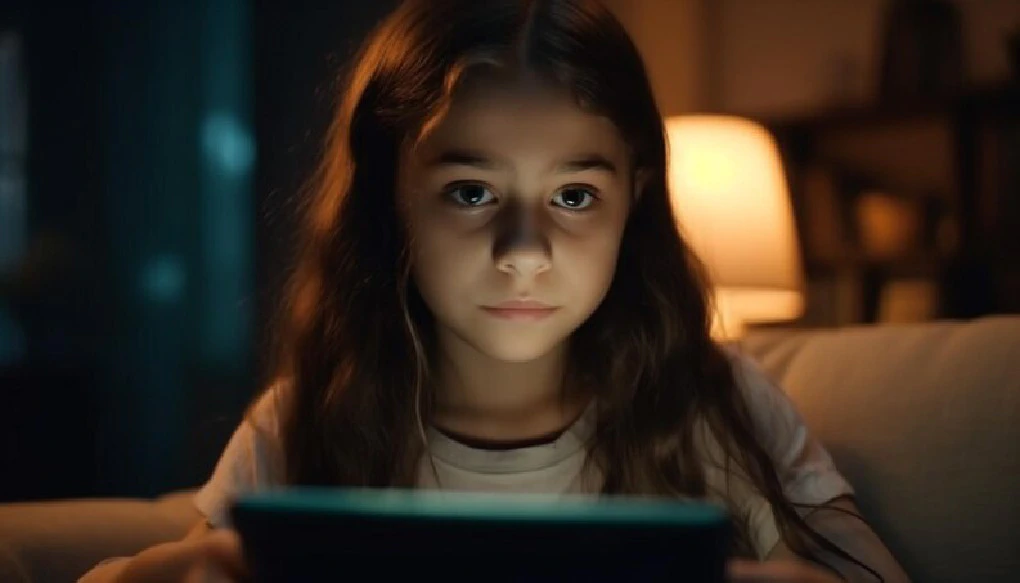
How is language and speech development in children?
Every baby who opens his eyes to life needs communication by nature. Language development goes through many stages in …


Questions that almost every parent wonders “What happens if he sees a screen? He didn’t see his brother, nothing happened, why was he affected? Until what age should we not show a screen / at what age can we start watching it?” Actually, the answer to these questions is not the same for every child. As each child’s brain development is different, the results of early screen viewing also vary between children. While some children benefit from the beneficial aspects of screen watching, we see that many of the children are exposed to the negative aspects of the screen today. So, What Negative Effects Does the Screen Have on Children’s Lives?
Studies have shown that children under the age of 2 cannot distinguish between an educational video they watch on the screen and the situation where the same information is given by a live person. This situation is called “video gap”. In another study, it was observed that children learned better from the videos they watched and retained information from a live person one-on-one for a longer period of time. Let’s think about it, can a baby who cannot distinguish between reality and screen image realize the important details he sees on the screen? Can he say, “These images are very fast, let me control myself a little bit, so I won’t be affected”? Unfortunately, they cannot say or be aware of it, and they are faced with the hypnotic effect created by the rapid, fluent image in the brain.
What is Clip Syndrome? Clip syndrome is the state of being hypnotized by the screen image that children watch in the early period. It can also be said that children start to look meaningless after a while at the screenshot they watch. It is a condition that triggers language development delay in children due to social isolation.
The incidence of various problems is also quite high in children who are exposed to intense screens in the 0-2 age period, which is the most important stage of brain development and includes many critical periods. It is seen that children get used to the fast movements they see on the screen and involuntarily increase their mobility in their daily lives. Over time, this situation triggers distraction in children and causes them to turn into attention-focusing problems in the future.
It includes imitation skills on the basis of symbolic play skills that we expect to develop after the 18th month. With imitation skills, children enter the natural learning process. Children learn to imitate through repetitive games and verbal communications with their parents. However, we see that weakness in imitation skills occurs in infants exposed to intense screens in the early period. The screen, which is a one-sided communication tool, causes children’s imitation skills to atrophy after a while because they do not make sense of any sound they make, any behavior they make, and do not repeat and respond to the child. Social delays occur in babies who stop imitating their natural life over time. Babies who do not develop social play skills need to be understood by someone more as they get older. When the necessary interaction process with the baby is not entered, babies begin to develop various stereotypical behaviors. These meaningless repetitions, which are completely distracting behavior, appear as autism symptoms in children.
If we look at the negative effects in the preschool period, we see that the wrong program choice and the exposure of children to violent visuals cause behavioral problems. At what age should the screen be watched? What are the educational aspects of the screen?
Many families claim that the screen has educational aspects. For this reason, they make their children watch many videos that they think have an educational side. When we look at the studies, we see that the educational aspects of screen watching are mentioned. However, it is claimed that this situation depends on the content of the screen image watched, the age at which it is watched by the children, the duration of the viewing and whether the parent accompanies this situation. It has been observed that after 18-24 months, children’s ability to learn information from the screen gradually begins to develop. Considering the developmental age of Turkish children, 18 months and later, which is considered the critical period of social play development, is an important time interval. Therefore, we think that not showing children a screen until at least the 24th month benefits the general development, focusing and social interaction process. Children with developmental delay or at developmental risk should not see a screen until the risk factor disappears. We recommend.
Parents can make sure that their children develop normally, and after 24 months, by choosing the right program and actively participating, their children can watch a screen with a maximum time limit of 15-20 minutes. In this process, families should interact with the questions of “why, who, where, when, for what” by including their children’s screen watching. They should explain the content of the program watched to their children with logical explanations. Again, they should not forget that they should not leave their children alone in this process.
Do not use the screen as a reward! Dear parents, “My child is very addicted! He never eats his food without a screen! Do we remember the sentence “He never sleeps without watching!” Let’s think about some of the reasons for these sentences, which many parents use and shout, “But my child is very used to watching!” Is this screen preference really your child’s habit or yours? Yes, the answer is obvious. This situation, which is preferred by the parents’ convenience, and which causes addiction in the child after a while, is actually the habit of the parents. Over time, this 3T becomes an indispensable toy for children. Trying to satisfy the needs of children with television triggers communication problems between children and families. After a while, this situation started to become a reward, but it became inextricable.
Instead of tablets, phones, televisions; If you get used to reading a book to your child while feeding, before going to sleep or during the journey, and playing games happily by having fun under any circumstances, you will not need to prefer the screen. You ask why? Because your child will learn to have fun with you, to forget about his own crisis when he is angry, and as his communication with you increases, he will get used to finding a solution by talking about the problem. Therefore, dear parents, play lots of interactive and fun games with your children so that you can further strengthen the communication bonds between you. Don’t have to choose unnecessary, harmful stimuli. Do not forget that every moment spent with pleasure in the early period is an important step for the future development process…
Media Use by Children Younger Than 2 Years, Council on Communications and Media;
Pediatrics 2011;128;1040 DOI: 10.1542/peds.2011-1753 originally published online October 17, 2011; The online version of this article, along with updated information and services, is located on the World Wide Web at: http://pediatrics.aappublications.org/content/128/5/1040

Every baby who opens his eyes to life needs communication by nature. Language development goes through many stages in …

Knowing how to behave during the seizure is the most curious issue for families of children with epilepsy. Although …
Contact us before it’s too late for your health.
Don’t delay your health.